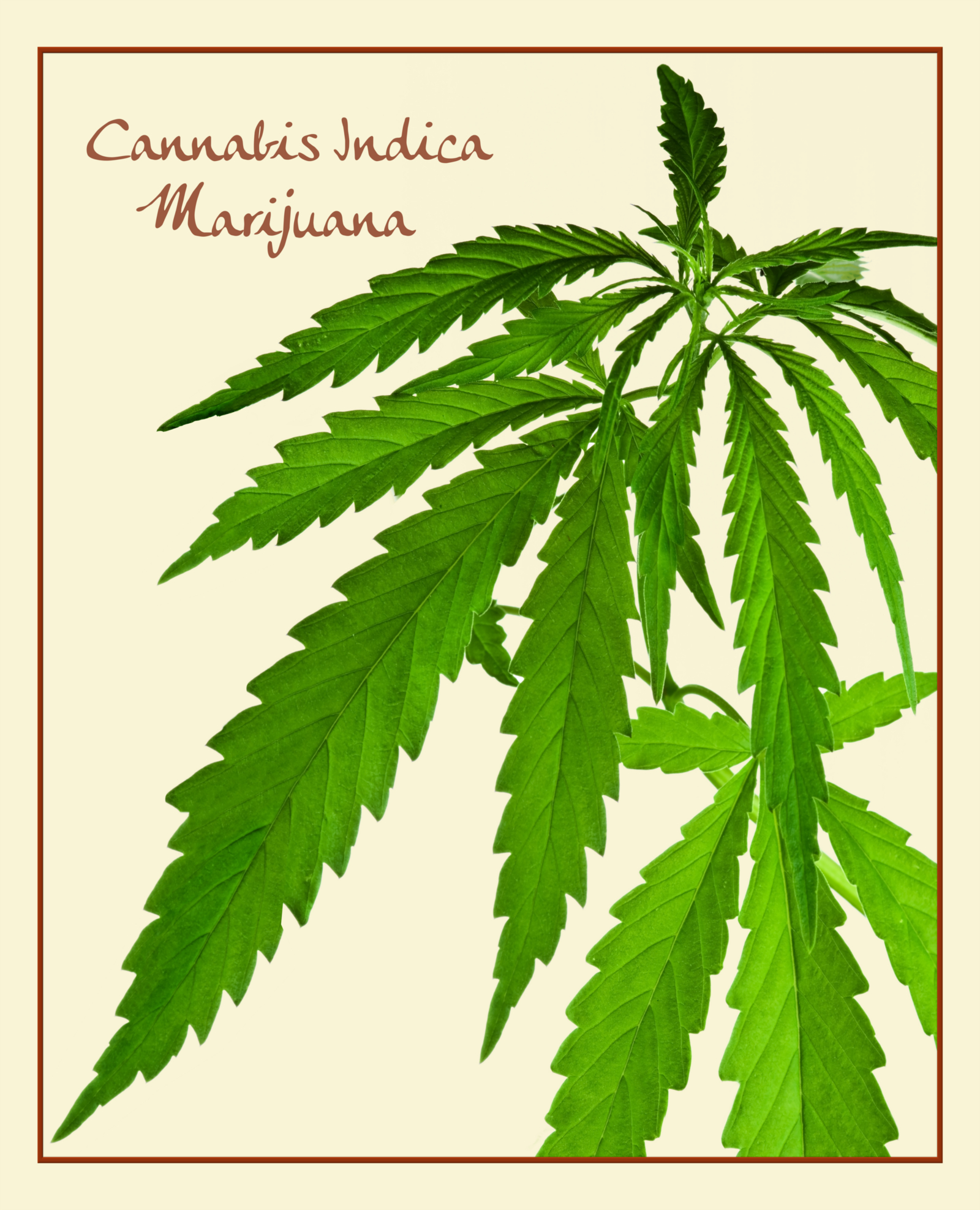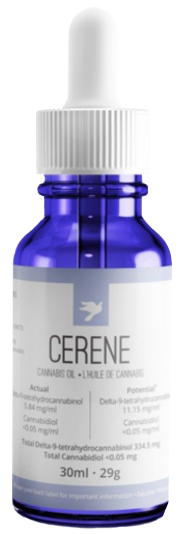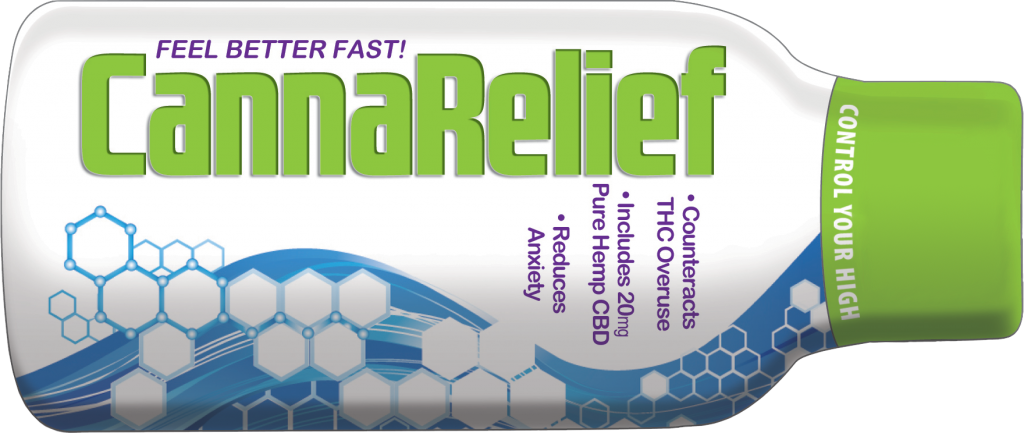Cannabis is believed to be one of the oldest domesticated crops. Throughout history, humans have grown different varieties of cannabis for industrial and medical uses.
Tall, sturdy plants were grown by early civilizations to make a variety of foods, oils and textiles, such as rope and fabrics. These plants were bred with other plants with the same characteristics, leading to the type of cannabis we now know as hemp.
Other plants were recognized for being psychoactive and were bred selectively for medical and religious purposes. This led to unique varieties of cannabis that we now know as marijuana.
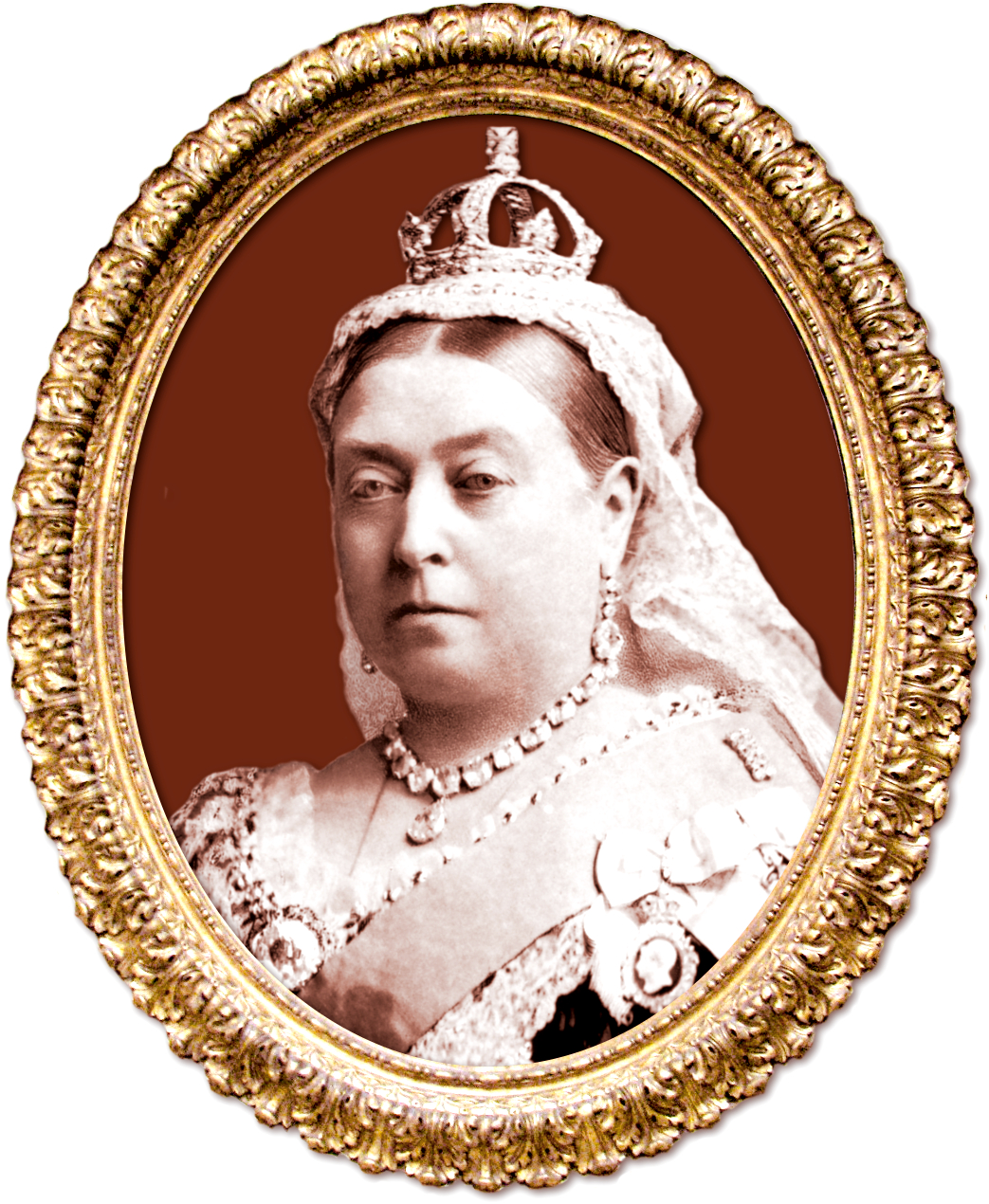 The active ingredient in many 19th century patent medicines was cannabis.
The active ingredient in many 19th century patent medicines was cannabis.
There’s even an urban legend that Queen Victoria was a user.
The war on drugs put an end to medicinal cannabis in Canada..
But pain management has always been critically important for the quality of life of many who have suffered injury or chronic illness.
Although Canadians can access a wide variety of drugs through a doctor’s prescription, there are many variables. When it comes to medicine, one size does not fit all:
- what works for some patients doesn’t work for others.
- long term use can decrease the effectiveness of pain killers, and
- addiction and other side effects can reduce a patient’s quality of life.
Even as the emerging 20th Century pharmaceutical industry exploded into a rainbow of pain killers, anti-inflammatories, anti-depressants, analgesics and the like, not every patient or disease is adequately served by prescription medicines.
And so, illegal or not, in the latter part of the 20th Century, growing numbers of Canadians sought pain relief from cannabis.
Civil Disobedience
“Compassion clubs came to Canada in the late 1990s, based on similar medicinal marijuana clubs in the United States. The goal of compassion clubs is to provide safe access to medicinal, or medical, marijuana when there is no government-sanctioned program, or when such a program is not effectively meeting the need.
“Compassion clubs exist to provide medical marijuana to people in need, but not all their members are licensed by Health Canada. While the clubs usually have their own strict guidelines for membership and providing cannabis—for chronic conditions, most clubs require a doctor’s note confirming a patient’s condition; for some conditions, a doctor’s prescription may be required—this does not make unlicensed members’ use legal. So, fear of prosecution is still a concern.
“Compassion club operations, in fact, are illegal under Canadian law.”
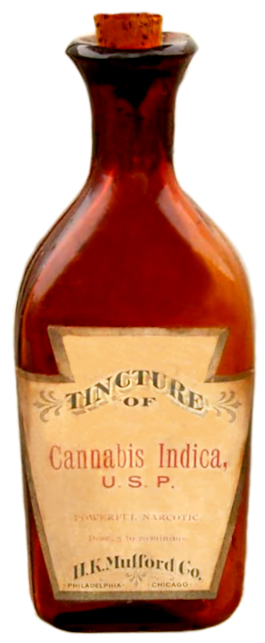 After nearly a century of total Cannabis prohibition, on December 10th, 1997, Ontario Judge Patrick Sheppard ruled that the law prohibiting 42 year old Terry Parker’s use of marijuana to treat his epilepsy was unconstitutional.
After nearly a century of total Cannabis prohibition, on December 10th, 1997, Ontario Judge Patrick Sheppard ruled that the law prohibiting 42 year old Terry Parker’s use of marijuana to treat his epilepsy was unconstitutional.
The Ontario Court of Appeal upheld the ruling and gave the federal government 12 months to make it right..
One day before the expiration of the court ordered time limit (July 30, 2001) the government implemented the Marihuana Medical Access Regulations (MMAR) (PDF). The MMAR created a framework that allowed (only) patients suffering from designated severe and extreme conditions to go through a lengthy and complicated application process that might result in a government license allowing them to possess and use marijuana legally.
Worse, the regulations failed to provide patients with any way to actually obtain a legal cannabis supply. This serious deficiency resulted in a succession of court challenges that eventually resulted in amendments that allowed patients to:
- purchase dried marijuana from a single government supplier, or
- grow their own, or
- select a grower to grow cannabis for them
Many patients found the quality of the Health Canada’s cannabis to be inferior to cannabis available through Compassion Clubs or even the black market. The nonprofit BC Compassion Club (BCCCS) was founded in 1997, and has built a good reputation using knowledge and expertise to help patients find the best strain to address their health needs.
“Most of the harm associated with cannabis is actually due to the act of combusting,” notes [Jay Leung,communications coordinator for the BCCCS]. He adds that BCCCS has vaporizers for their clients to use, which produce the same effects as smoking without the health risks. The club also provides non-smoking options such as cannabis-infused oils and butter, tinctures (cannabinoids are extracted into an alcohol or glycerine base, then dropped or sprayed orally) and a variety of baked goods. And the dispensary sells items such as the vaporizers, forest-friendly rolling papers, glass pipes and more, which help members consume cannabis safely and effectively.”

Although these clubs or dispensaries operate outside the law, they have provided medical marijuana in the form chosen by patients. Medical evidence demonstrates the connection between smoking and cancer, so it’s not surprising patients might prefer not to smoke their medicine.
Her Majesty the Queen v. Owen Edward Smith

When police found large amounts of cannabis-infused olive oil and cookies in the apartment of Owen Smith, former head baker for the Cannabis Buyers Club of Canada, Smith was charged with unlawful possession of marijuana and possession for the purpose of trafficking under the Marihuana Medical Access Regulations. At the time, Canadian Law only allowed patients to consume Medical Marijuana by smoking it in dried form in spite of numerous studies about the health risks associated with smoking.
Smith was acquitted in 2013 because Mr. Justice Johnston found the Regulations that denied medical marijuana users any way to consume their medicine besides smoking to be arbitrary, unjustified and a breach of section 7 of the Charter. The Province of BC appealed, and lost, and the Court of Appeal for BC ordered the federal Government to correct the law within a year. The Harper Government chose instead to appeal Mr Smith’s successful constitutional challenge all the way to the Supreme Court of Canada in January 2015. In March the SCC upheld the ruling.
In 2014 the Harper Government changed the regulations, replacing the MMAR with Marihuana for Medical Purposes Regulations (MMPR) on April 1st, 2014. The new regulations prohibited patients from growing their own, instead, they were required to purchase their supply of medicine from licensed commercial growers.
Legalization?
The 2015 federal election gave the Justin Trudeau Liberals a “majority” government with a mandate to legalize cannabis in Canada. The new government placed the legalization file in the hands of rookie MP Bill Blair, better known as Toronto’s top cop during the infamous Toronto G20. Understandably cannabis activists have not been reassured by this choice.
While there has been plenty of talk about the government commitment to legalization, more than 2 years into the government’s term, Canadians continue to be arrested for cannabis possession at alarming rates.
Since the Supreme Court of Canada upheld the R v Smith decision on edibles in 2015, it wasn’t surprising to see extensive consideration of cannabis edibles in the Government’s own Final Report of the Task Force on Cannabis Legalization and Regulation. The surprise was that the first draft of the legislation that will eventually legalize cannabis for all Canadians originally excluded edibles from the 2018 legalization plans.
There was enough public pushback to convince the Standing Committee on Health to amend the draft legislation in October, 2017. BILL C-45, the Cannabis Act or, An Act respecting cannabis and to amend the Controlled Drugs and Substances Act, the Criminal Code and other Acts, now intends to include edibles no later than 12 months after the law is enacted. The frivolous 100-cm height limit on the four plants Canadians will be allowed to grow at home was also removed.

Misinformation is dangerous.
Given that Cannabis was criminalized here without anything resembling scientific evidence, debate, or even any need for such a policy in 1923, Canada has undertaken little or no legitimate scientific study of the prohibited plant. As a result, the scarcity of official empirical evidence frees opponents of legalization to make unfounded and often ridiculous claims in support of their own preconceived notions.
A a racist brochure created by Trellis Mental Health and Developmental Services somehow made its way to the information desk at the Canadian Mental Health Association.
 Frightening tales without any basis in fact repeated over and over during the decades of Cannabis Prohibition are blindly accepted by some. Sometimes even counsellors tell “friend-of-a-friend” stories— urban legends— about people dying from eating pot brownies.
Frightening tales without any basis in fact repeated over and over during the decades of Cannabis Prohibition are blindly accepted by some. Sometimes even counsellors tell “friend-of-a-friend” stories— urban legends— about people dying from eating pot brownies.
There have even been cases like the one where a professional pathologist imagined someone died from smoking a joint. The reality is that there’s no evidence cannabis use has ever killed anyone. On the contrary, the evidence we do have indicates such a thing is not possible.
“7. Drugs used in medicine are routinely given what is called an LD-50. The LD-50 rating indicates at what dosage fifty percent of test animals receiving a drug will die as a result of drug induced toxicity. A number of researchers have attempted to determine marijuana’s LD-50 rating in test animals, without success. Simply stated, researchers have been unable to give animals enough marijuana to induce death.
“8. At present it is estimated that marijuana’s LD-50 is around 1:20,000 or 1:40,000. In layman terms this means that in order to induce death a marijuana smoker would have to consume 20,000 to 40,000 times as much marijuana as is contained in one marijuana cigarette. NIDA-supplied marijuana cigarettes weigh approximately .9 grams. A smoker would theoretically have to consume nearly 1,500 pounds of marijuana within about fifteen minutes to induce a lethal response.
“9. In practical terms, marijuana cannot induce a lethal response as a result of drug-related toxicity.”
Former sources of information once considered to be an authority in substance use are being questioned with good reason: “Reefer Madness” has taken on new forms to serve corporate special interests. As legalization approaches, the need for credible education is desperate.
And still government sends mixed messages.
“If you operate one of these facilities, consider yourself on notice.”
— Ontario Attorney General Yasir Naqvi
In spite of promises of legalization by July 2018, heavy handed law enforcement crack downs on grey market dispensaries are justified by the government because Cannabis is still illegal.
But the “offense of compassion” committed by medical marijuana dispensaries’ clearly has public support. Justices tasked with sentencing the owners of these facilities are giving absolute discharges.
Producers Licensed under the Access to Cannabis for Medical Purposes Regulations have been recalling product mailed to patients. It’s the users who are suffering most. Unsurprisingly people seeking access through medical marijuana dispensaries are being pushed back into the black market. What is the point of that?
Grey market dispensaries, like the Toronto Compassion Club, have been managing physician prescribed access to medical marijuana since 1997. The majority of public safety concerns stem from a lack of understanding of the values which created these grey markets in the first place.
Last summer, The Globe and Mail investigated products being supplied to patients at 9 dispensaries in Toronto. The results were not what most would expect from dispensaries denied access to professional quality testing. Fully two thirds (6 of 9) of the medical marijuana the Globe tested showed “contaminants were either not present or tested below the allowable limits set by Health Canada.”
Lisa Campbell, chairwoman of Women Grow Toronto, told VICE she’s hoping there will be a constructive conversation about regulating recreational versus medical dispensaries instead of having knee-jerk policies put in place. Norml Canada declares that the criminal prohibition of the cultivation and use of cannabis is no longer the most suitable measure for protecting public health and welfare and preventing the diversion of drugs into illicit traffic.
Waterloo Region
The City of Kitchener has not been very responsive to those seeking permits to offer safe access to cannabis, or lounges for consumption. Dispensaries that had been operating within the region were threatened with fines. Some closed their doors, while others continued to supply patients until they were raided.
Alternative Cannabis Consumption Awareness (ACCA)
About five or six months ago, Cory Orr and Tony Millar, founders of Alternative Cannabis Consumption Awareness (ACCA), sparked some interest at 44 Gaukel. The two were referred to the Waterloo Region Small Business Center. They connected with small business advisor Rob Clement, who advocated on their behalf. ACCA has been the first cannabis related business approved for a WRSBC grant.

ACCA believes that craft cannabis, like craft beer, has a place in the market; their primary goal is to educate the public, which includes the acknowledgement there is good and bad everywhere.
“Everyone wants it (a lounge), but no one wants their name on it.”
— Tony Millar
Court decisions continue to uphold patient rights, while the the Minister of Health claims the government needs more time to work on designing an appropriate regulatory system to develop and implement regulations. ACCA acknowledges information provided by Health Canada is updated regularly, and cite current publications in order to maintain credibility.
Professor David Hammond at the University of Waterloo, has been a great resource for ACCA, with his graduate and student supervision. Hammond, CIHR-PHAC Chair in Applied Public Health, focuses his research on chronic disease prevention and global health in the areas of tobacco control policy, health diets and obesity prevention, as well as harm reduction and drug policy. Professor Hammond is studying the effects of vaporizing cannabis, to better support students with related research interests in cannabis and harm reduction related research interests.
ACCA began hosting information sessions at UC Vape September 15th 2017.
Edible Awareness
The first information night was inspired by Lisa Campbell’s presentation to the Toronto Business Licensing Committee and R v Smith.
ACCA hosted guest speakers from Magical Butter and the Green Market, as well as Charlene Freedom, who discussed the topical application of cannabis products.
Extract Awareness
The second information night included live demonstrations with a hydraulic rosin press by Rosin Arts and a live ice water extraction using Bubble Bags. These presses and bags will potentially be made available for rental in the near future. Another partner, Blue River will be the supplier of terpenes. According to their website, Blue River “offers the widest selection of award winning full spectrum essential oils naturally derived from whole plant cultivars. Our prices are based on grade, yield, and availability. Our pure essential oil products are designed to be used as a diluent for aromatherapy and vaporization.”
Cannabis Lounges and Activism
 ACCA’S third installment of their ongoing mission to educate the public, drew some media attention. Jodie Emery went into detail about her tireless legalization efforts within political circles, while keeping Cannabis Culture Magazine alive following husband Marc Emery’s extradition.
ACCA’S third installment of their ongoing mission to educate the public, drew some media attention. Jodie Emery went into detail about her tireless legalization efforts within political circles, while keeping Cannabis Culture Magazine alive following husband Marc Emery’s extradition.
Abi Roach reminisced about when she started renting out a vaporizer back in 2003, to people looking for a place to consume their cannabis. The Hotbox Cafe in Toronto is celebrating it’s 14th year in operation. In the evenings “Hot Box Afterdark” hosts music and special events after 7pm. The Afterdark promotes itself as a great alternative to the bar scene. Abi spoke about how people need to consider what they’re advocating against, and that people shouldn’t have to get their pot from bikers.
Canna Relief, a product that will soon to be on shelves at your local Shoppers Drug Mart, was available for sample. The CBD drink is a specially formulated supplement containing a synergistic blend of vitamins, herbs, amino acids, and 20mg of pure CO2 extracted CBD derived from hemp stalk and seed. CannaSafety are confident that CannaRelief will help you control and manage THC anxiety so that you can safely and therapeutically benefit from your personal medicine.
Patients First “Action Plan for Heath Care” [download PDF] aims to bridge the gap for patients to Access, Connect, Inform, Protect.
“Although dispensaries were not a focus of the parties’ submissions, I find Ms. Shaw’s evidence [as a representative of the dispensaries] to be extremely important as dispensaries are at the heart of cannabis access,”
—Justice Michael Phelan, Reasons for Judgment (February 2016) Allard decision [download PDF]
“Municipalities seem to want to help, but don’t want to put themselves at risk” said Millar. Provinces are going to have to manage the regulatory aspects, but the proposed framework for new legislation does not leave room for the current market. On their website, the Liberal Party says “We will legalize, regulate, and restrict access to marijuana.”
New penalties would range from a simple police citation to 14 years behind bars, along with a “zero-tolerance approach” to drug-impaired driving, and a “robust” public awareness campaign.
“
Because there were no advocates for the treatment of drug users prior to the late 1950s, it was easy for enforcement-related interests to implement harsh anti-drug legislation. This also meant that although drug users were often thought of as “sick,” imprisonment was a priority over treatment (Blackwell 1988:163).
“In addition, because habitual drug use was associated mostly with Chinese immigrants, many Canadians felt they were “immune from the effects of harsh drug legislation” (Alexander 1990:32).”
PERSPECTIVES ON CANADIAN DRUG POLICY Volume 1 The John Howard Society of Canada [Download PDF]
Canadians deserve evidence based harm reduction strategies. Alternative Cannabis Consumption Awareness is working with front runners in the early stages of a legal market, to provide the most up to date information, and in the near future, a place where the culture can thrive. Safe consumption sites will help integrate the shift in consciousness, as stigma is replaced by awareness.

Back To Part I: “Why is Cannabis Illegal?”
Ahead to Part III: “The Politics of Cannabis Legalization”
Credits
Cannabis Indica Marijuana graphic modified from Cannabis indica – young plant by via Wikipedia
Queen Victoria photograph by Alexander Bassano is a Public Domain Image via Wikimedia Commons
H. K. Mulford Co. Tincture of Cannabis Indica bottle (Digitally enhanced image by Laurel Russwurm) based on a photograph of an exhibit at The Herb Museum, Vancouver (fair use)
Smoking by Yurton released with a CC0 dedication to the Public Domain via Pixabay
Edibles: Brownies and Caramel Corn by Cannabis Culture released under a Creative Commons Attribution 2.0 License on Flickr
Melia Robinson tweeted image from David Schmader‘s book, “Weed“(Fair Dealing/Fair Use)
Cory Orr and Tony Millar portraits via LinkedIn (Fair Dealing/Fair Use)
Marijuana Cookies by Eli Christman released under a Creative Commons Attribution 2.0 License on Flickr
Cannabis Oil publicity photo by PeaceNaturals (Fair Dealing/Fair Use)
Jodie Emery (cropped) Photo by Jeremiah Vandermeer released under a Creative Commons Attribution 2.0 License on Flickr
CannaRelief publicity photo via CannaSafety (Fair Dealing/Fair Use)
PERSPECTIVES ON CANADIAN DRUG POLICY Volume 1 The John Howard Society of Canada [Download PDF] (Fair Dealing/Fair Use)
Canadian Cannabis graphic created from Cannabis Chemistry art by Kyrnos with a CC0 dedication to the Public Domain on Pixabay
[edited by Laurel L. Russwurm]
